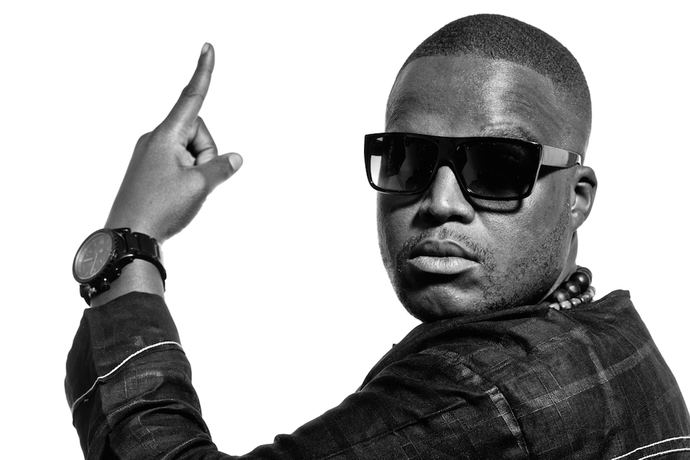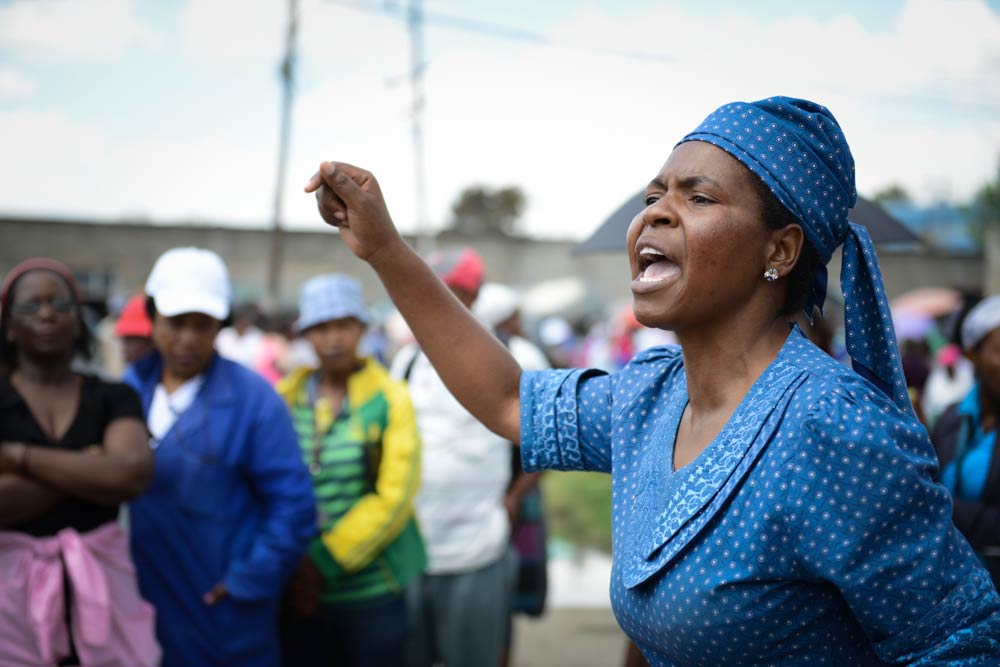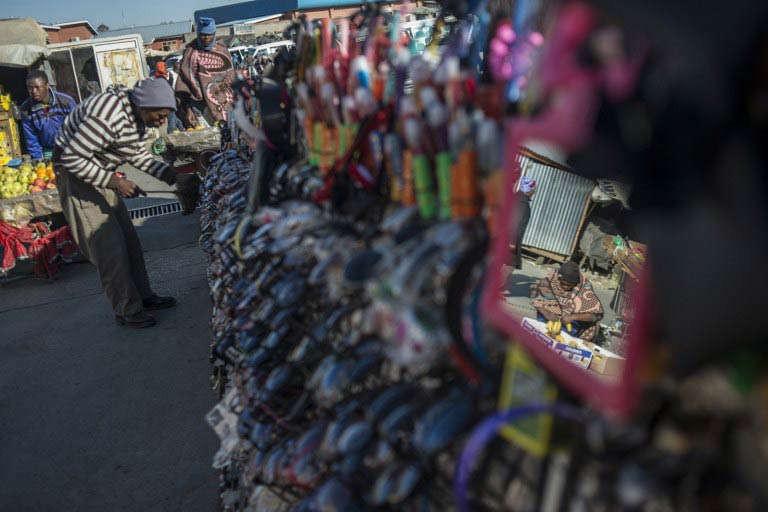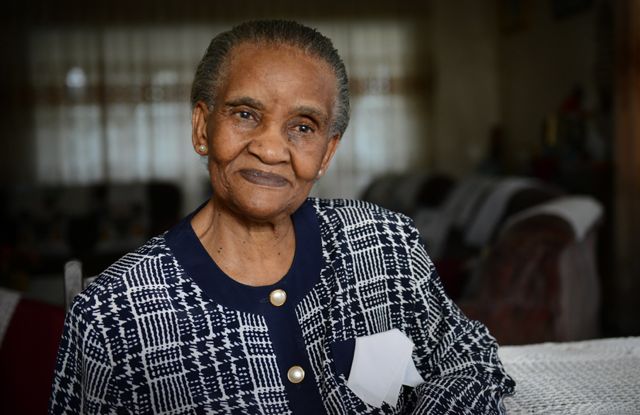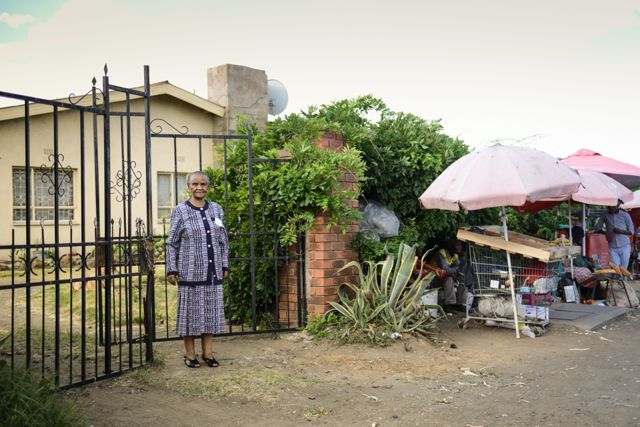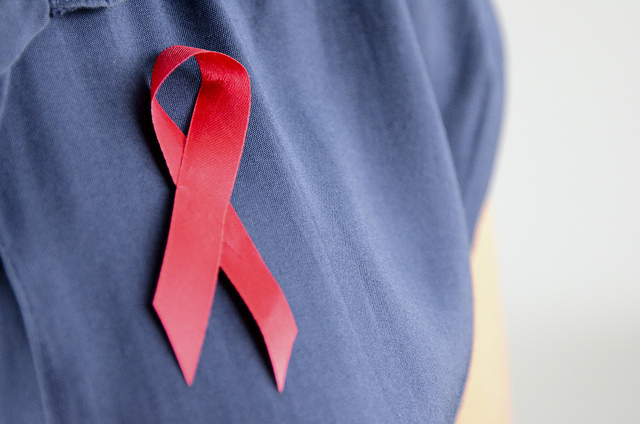There is a growing bustle of colour, sound and movement outside Maseru’s Setsoto Stadium this morning of May 16. A crowd is gathering, the majority of them dressed in brightly coloured clothing. Banners, flags and rainbow-striped umbrellas are being handed out. Shouts, whistles and laughter intermingle with the loud music blasting from the back of a truck.
Billy Molapo has dressed up for the occasion. He stands tall and proud in a long dress, stilettos, pink beret and large hoop earrings. His face breaks into a wide smile when I ask him how he feels about today.
“I’m happy,” he says simply. “I want to show everyone that I’m proud of who I am.”
In a little while, Molapo and the rest of the crowd will set off on a gay pride march through the streets of Maseru, held today to commemorate the International Day Against Homophobia and Transphobia (IDAHOT). For the third year in a row, the event has been organised by Matrix Support Group, a local organisation working to promote the rights of lesbian, gay, bisexual, transgender and intersex (LGBTI) people in Lesotho.
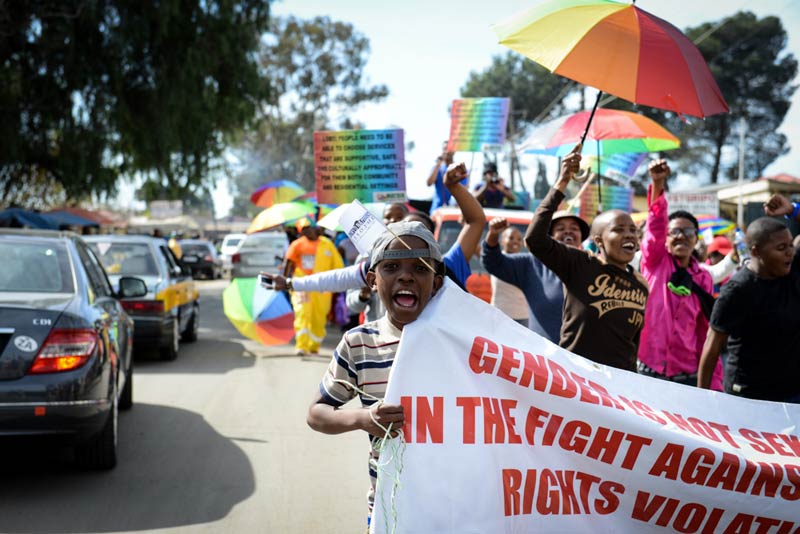
Since its establishment in 2008, Matrix has spearheaded the country’s emerging LGBTI rights movement. Lesotho’s laws regarding homosexuality are somewhat ambiguous. Female same-sex sexual activity has never been criminalised, but male same-sex sodomy is prohibited as a common-law offence. The anti-sodomy law, however, has never been enforced in an instance of consensual sexual activity. As is the case with many former British colonies and protectorates, the law has simply remained unchanged for decades. Lesotho’s Constitution makes no mention of offering protection to individuals against discrimination based on their sexual orientation or gender identity.
Moleboheng Mokotjo has been a member of Matrix for the past six years. This is her third pride march. She looks relaxed and comfortable, and shrugs off my question about whether she thinks there will be any trouble today.
“I think 2 out of 10 people will say something negative. For me, this march is a way of saying: ‘We are here. We are your brothers and sisters. Acknowledge us. Talk to us and try to understand what we are going through.’”
“My family knows that I’m a lesbian, but it’s something that we’ve never openly discussed. A lot of LGBTI people in Lesotho struggle to gain acceptance from their families. I have a friend who came out and has since been completely cut off from her family.”
“A lot of society still doesn’t accept us. You have to choose where you go, keep to your bubble, and know who to associate with. I know my space, I know where I will be accepted for who I am, and I don’t go into other spaces.”
Leshoboro Mokhameleli, an openly gay man and a volunteer with Matrix, says that there are occasionally incidents of violence towards LGBTI individuals.
“I know two friends who have been beaten up just for being gay, but this is something that rarely happens. Violence against gay people here is not as common as it is in South Africa. Name-calling happens all the time. People often shout out: ‘What are you? A man or a woman?’ I’m so used to it that I just brush it off and walk away.”
At least two hundred of us have gathered at this stage. The procession begins, led by a police van and the music-blaring truck. The people at the front break into a jog, lifting their rainbow-striped umbrellas and banners in time to the music. A giant, billowing rainbow flag is carried by about twenty people. The march goes through the very heart of the city. We walk past street vendors, pedestrians, taxis, hair saloons, butcheries, shisa nyamas and bars. It is impossible to ignore us. We are met by a whole range of facial expressions and reactions. Some onlookers simply stand and watch. Some look disapproving, some look indifferent. Many smile, laugh and begin to dance on the spot, responding in a natural, carefree way to the music.
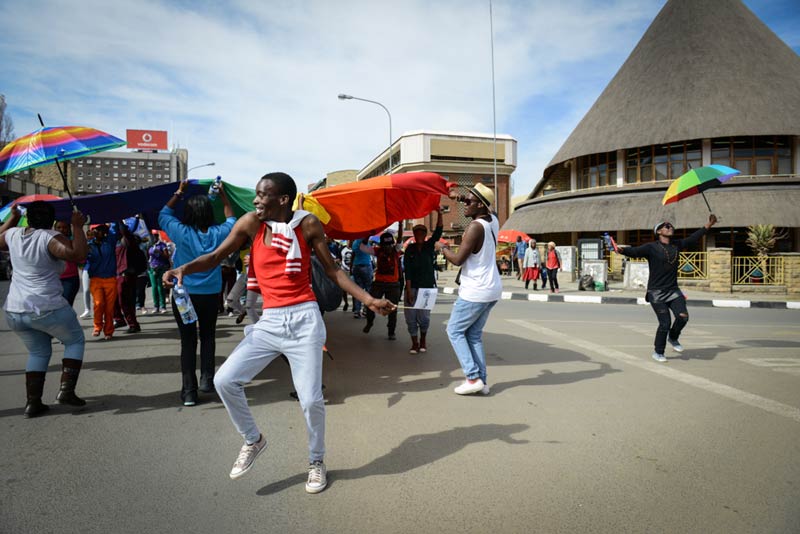
We walk past the taxi rank, and when we get to our first set of traffic lights the whole group stops in the middle of the road and dances on the spot. People raise their knees high, and the giant rainbow flag is furiously waved up and down. The truck is now playing a well-known gospel song. Many of the marchers sing along, lifting their hands and ululating as they walk.
We arrive on Kingsway, the city’s main street, crowded with taxis, cars and people. Traffic is again brought to a standstill as we flood the road. At this point, Angel Thoko, a Matrix Program Manager, is standing at the top of the truck, shouting into the microphone. There is a sharp change in the tone of the march as her voice screams through the speakers: ‘Amandla!’ ‘Rights!’ ‘Down, homophobia, down!’ The aim of the procession is firmly declared, loudly and boldly for all to hear.
Later, I ask Thoko how she felt in that moment, standing on the truck and confidently shouting out in the middle of the city.
“I felt wonderful,” she laughs. “I felt freedom within myself, I felt as if I owned the space.”
“This march helps LGBTI people in Lesotho to get together, to unite. But not everyone is able to join us. There are still many people who don’t want to be seen, who worry about what their parents or their friends will say. We want this march to get bigger every year. There will never be a time when we say: we have done enough.”
Health care, government support
Sheriff Mothopeng, also a Matrix Program Manager, explains that a major focus of the organisation is campaigning for equal access to health services.
“Lesotho has one of the highest HIV prevalence rates in Africa, and men who have sex with men (MSM) are especially at risk. We have projects where we sensitise health care workers at private and public health institutions, so that LGBTI people can easily access health services, without questions or discrimination.”
“In the future, we want to encourage parents and older people to come out and support this march. At the moment, it is mostly young people who are marching, so I’m afraid that some onlookers think to themselves that we are just ‘crazy children’, not to be taken seriously.”
Tampose Mothopeng, director of Matrix, laughs as he tells me about the slight hitch that the organisation experienced with the police on the eve of the march.
“I received a call from the police, asking me if this march was promoting homosexuality. If that had been the case, they would not have offered us any protection. I explained that this is an international commemoration against homophobia and transphobia, and luckily, in the end, they agreed to help, as they have done in the past two years.”
“We need more support from our government. We need leaders who recognise the diverse needs of their followers. We need government bodies to say to us: ‘We understand that you need health services, we understand that your rights must be protected. We are standing up with you to provide that.’”
“Matrix is working country-wide, in communities and in villages. We want to change the laws of this country, but first we need to make sure that people understand what we are talking about, so that when we come up, we come up with our parents and our supporters. We want the people, the gatekeepers, the leaders, to push this movement up.”
Leila Hall is a freelance writer living and working in Lesotho.

